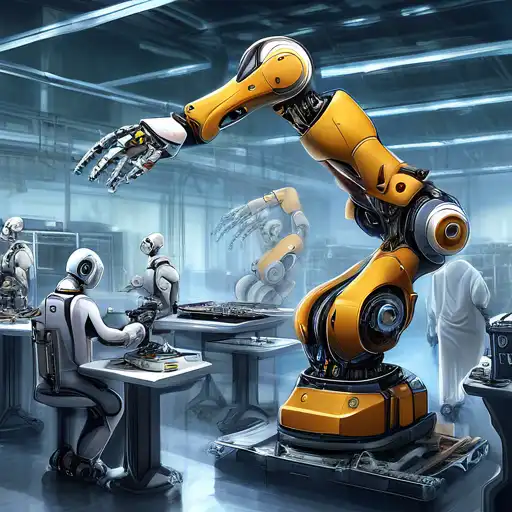The Revolutionary Impact of Robotics on Modern Manufacturing
In the ever-evolving landscape of manufacturing, robotics has emerged as a game-changer, revolutionizing how products are designed, produced, and delivered. This transformation is not just about automating repetitive tasks but about redefining efficiency, precision, and scalability in manufacturing processes.
Understanding the Role of Robotics in Manufacturing
Robotics in manufacturing refers to the use of automated machines that can perform tasks with minimal human intervention. These tasks range from assembly, welding, painting, to packaging and palletizing. The integration of robotics into manufacturing lines has significantly improved production rates and product quality while reducing operational costs.
Key Benefits of Robotics in Manufacturing
- Increased Efficiency: Robots can operate 24/7 without fatigue, drastically increasing production capacity.
- Enhanced Precision: With advanced sensors and programming, robots achieve unparalleled accuracy, reducing waste and rework.
- Improved Safety: By handling hazardous tasks, robots minimize workplace injuries, creating a safer environment for human workers.
- Scalability: Robotics allows manufacturers to easily scale operations up or down based on demand without significant labor changes.
Real-World Applications of Robotics in Manufacturing
From automotive to electronics, robotics is transforming industries. For instance, in the automotive sector, robots perform precise welding and assembly tasks, ensuring high-quality vehicle production. In electronics, robots handle delicate components with care, preventing damage during assembly.
Challenges and Considerations
Despite its benefits, integrating robotics into manufacturing comes with challenges. High initial investment costs, the need for skilled personnel to operate and maintain robots, and concerns over job displacement are significant considerations for businesses.
The Future of Robotics in Manufacturing
The future of manufacturing lies in the further integration of robotics with technologies like artificial intelligence (AI) and the Internet of Things (IoT). This synergy will enable smarter, more adaptive manufacturing systems capable of self-optimization and predictive maintenance.
As we look ahead, the role of robotics in manufacturing is set to grow, driving innovation and competitiveness. Businesses that embrace this transformation will lead the charge in the new era of manufacturing.
For more insights into how technology is shaping industries, explore our technology trends section.
